Fans vs air conditioners – which is better for cooling your home?
Expert advice on the differences between fans and air conditioners to find out which is better for you, your home, and your climate.
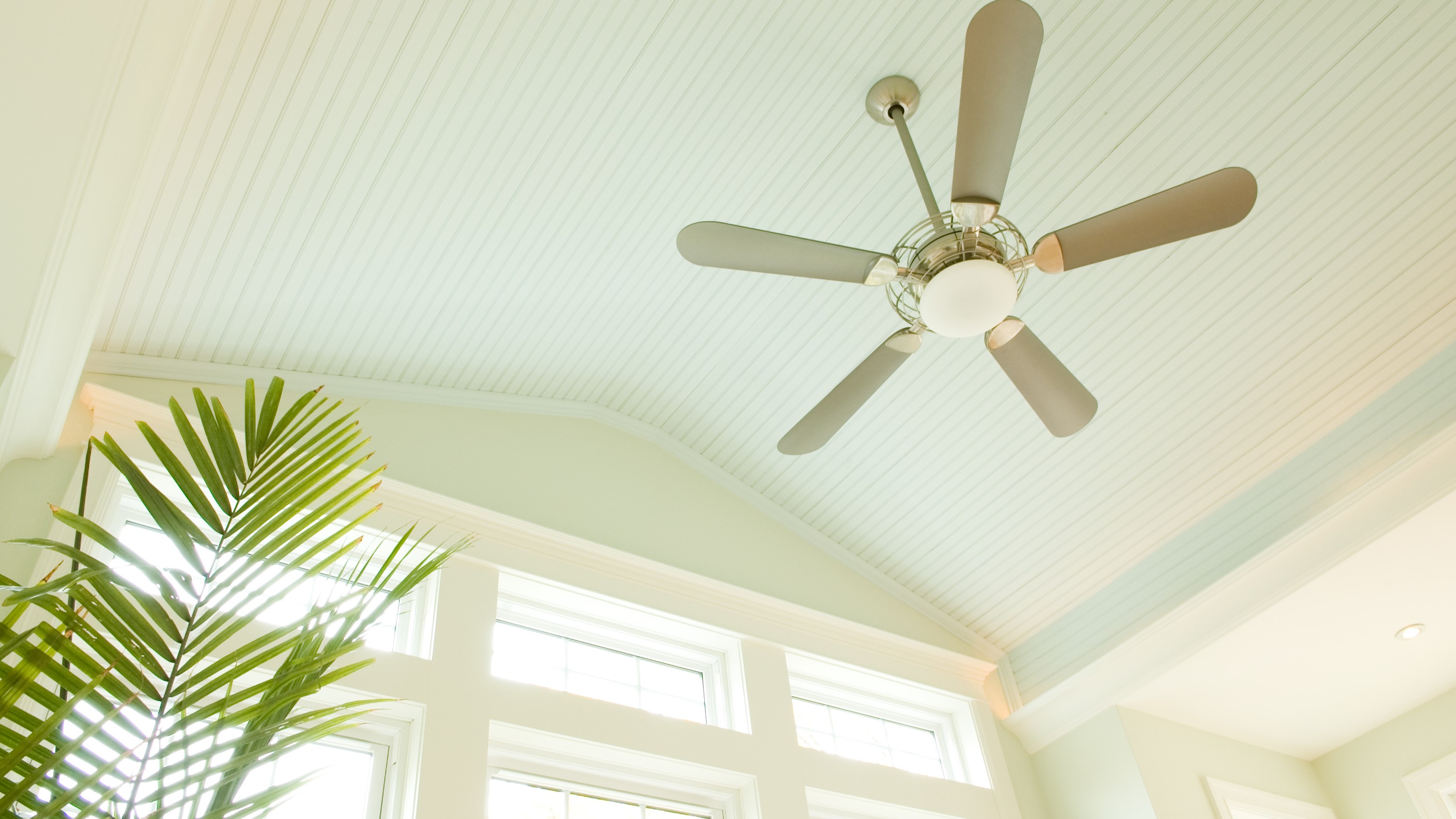
Hot weather is a blessing, but extremely hot weather indoors can sometimes become a bit unbearable. This is particularly true for humid climates, where hot weather comes with thicker air.
So, we turn to our cooling devices to keep us comfortable. But although they both cool us down, the best fans and air conditioners work very differently and come with their own sets of costs, features, and maintenance.
Below, we dive into exactly how these machines work and whether fans or air conditioners are right for you and your climate. If you're thinking of investing in a new AC unit, or simply considering whether fans can do the trick, this guide has the answers.
Fans vs air conditioners
We spoke to the experts to find out whether fans or air conditioners are better for your home, your climate, and your cooling needs.
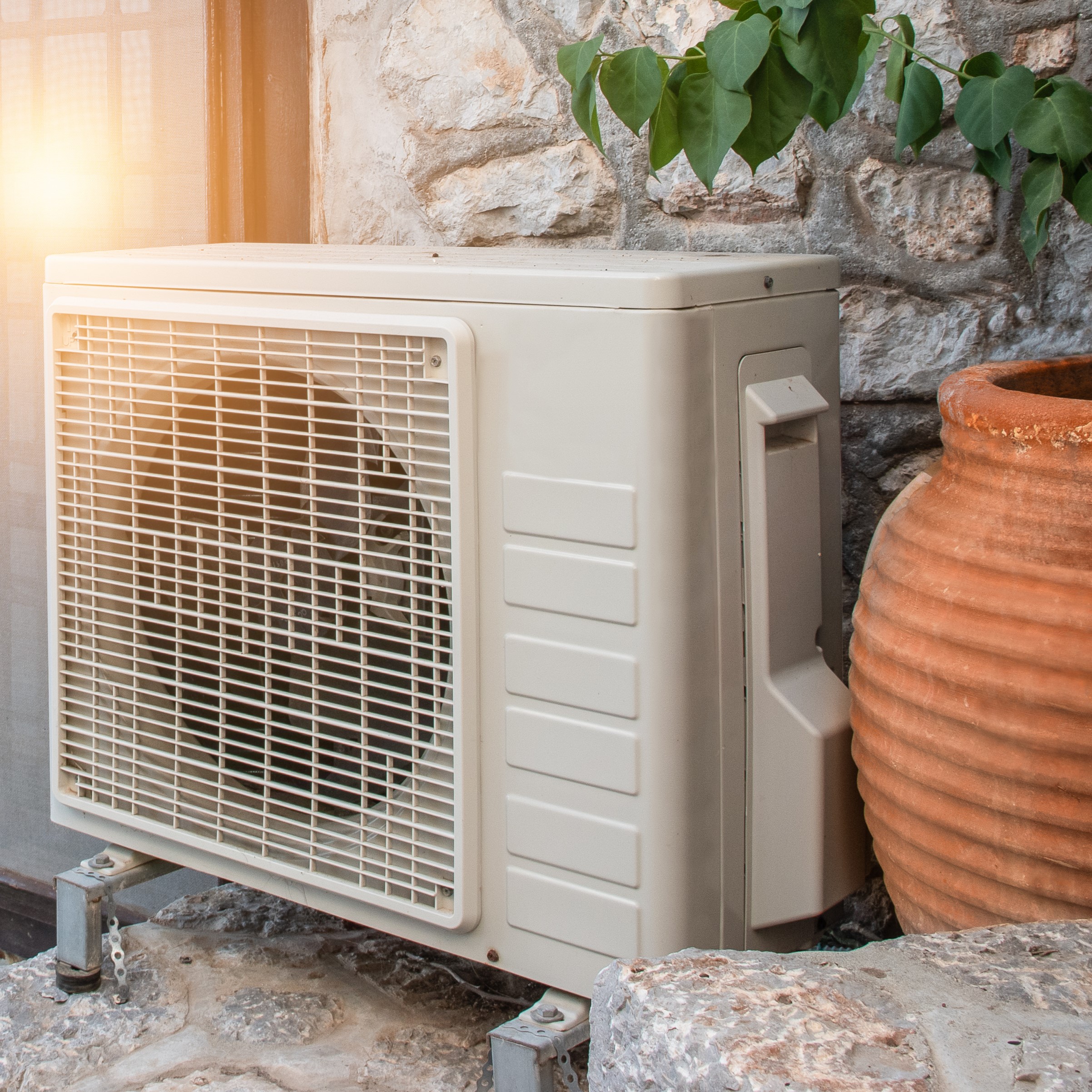
Fans vs air conditioners: What's the difference?
Aside from all the major design differences, there's a key distinction in how fans and air conditioners cool you.
Fans blow cool air over your skin by moving air around the room. This causes the moisture in your skin to begin to evaporate, and as the moisture retains body heat, this cools you in the process. Fans don't cool the air, but by blowing air over us, they displace the warm air in contact with our skin.
On the other hand, air conditioners actively cool the air in a room. Like with fans, evaporation is still happening, but it happens within the air conditioner unit. Inside the AC unit is a coolant; air is pulled in and cooled using the evaporation process, and then released back into the air. The evaporated warm liquid is then condensed and released elsewhere so that it doesn't radiate heat back into your room.
Fans vs air conditioners: Energy & cost
Unsurprisingly, air conditioners use up more energy than fans. All fans need to do is spin a motor, while AC units are undergoing more complex processes to actually cool the air. This also means that air conditioners require much more maintenance over time, including cleaning, servicing, and filter replacements. The only maintenance fans generally require is an occasional cleaning of the blades.
'Fans have a simpler cooling mechanism: they don’t lower the temperature in a room and make you feel cooler by improving air circulation and contributing to more efficient sweat evaporation. This process requires much less energy,' explains Glenn Gault, CEO at Gault Heating & Cooling.
Fans vs air conditioners: Cooling
Glenn raises a valid point on 'sweat evaporation,' highlighting the distinction between energy efficiency and cooling efficiency. Brandon Young, CEO of Payless Power, elaborates on this: 'Air conditioners are ultimately more efficient at actually removing heat and humidity from an indoor space.'
Fans don't provide lasting cooling. You'll only feel more comfortable for as long as they're on. Air conditioners, however, actually change the climate of the room, helping to reduce heat, humidity, and, ultimately, sweat. It's a much more comfortable environment and one that affects everybody in the room rather than whoever the fan is directed towards.
'Air conditioners are a must-have for humid and hot areas, as removing moisture from the air is a part of air cooling process,' says Glenn. 'High humidity makes the air feel warmer than it actually is because the moisture in the air prevents the effective sweat evaporation, which is your body's natural way of cooling itself.'
You also get a great deal more temperature control with air conditioning. Even many portable air conditioners let you set your optimal room temp - something that fans aren't able to do.
'Fans are better suited for milder climates or as a supplementary cooling method in conjunction with an AC unit. They're an inexpensive option for those seeking spot cooling in a specific room or area of the home, though they don't actually lower the ambient air temperature,' Glenn adds.
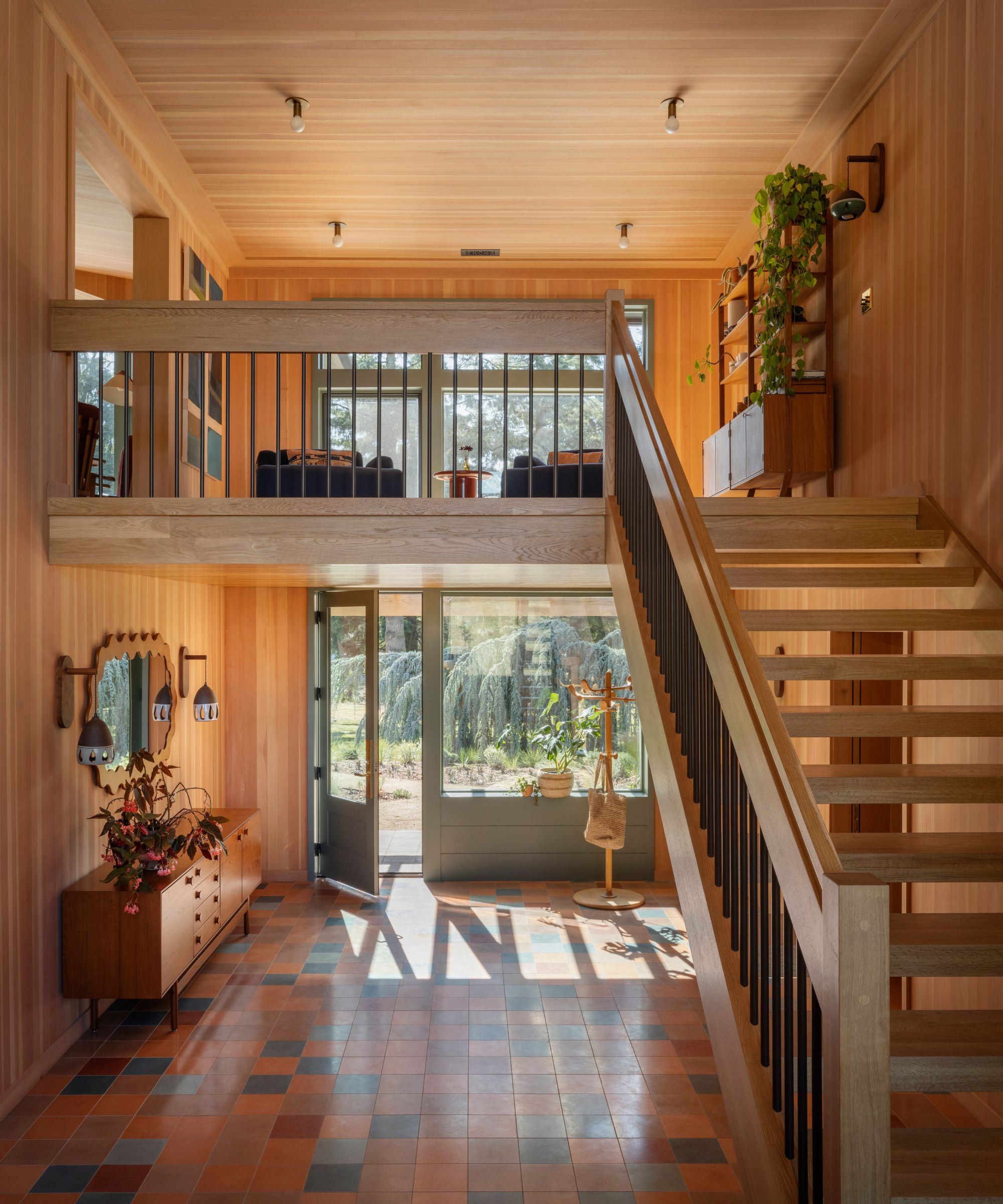
Fans vs air conditioners: Different types
We've already written a guide to the different air conditioning types, but here's a quick summary:
- Central air conditioners: This is the most efficient and most comprehensive type, covering the air cooling for an entire home. This can often be part of a home's HVAC system.
- Window air conditioners: These are more suitable for smaller spaces or individual rooms, and they are usually wall- or window-mounted, saving floor space.
- Portable air conditioners: Ideal for temporary cooling, they can be moved from room to room.
- Split or ductless air conditioners: These are more expensive but come with as many features as you could want, like automatic climate control or multiple room control.
- Geothermal hybrid or dual fuel air conditioners: They are more environmentally-friendly as they use less energy and emit fewer pollutants into the air.
Fans come in various shapes and sizes, too, cooling spaces in different ways. They can include:
- Ceiling fans: One of the only types of fan that's built into the home itself. They attach to the ceiling and circulate air around the room, providing ventilation.
- Tower fans: A popular fan choice for cooling individual rooms. They can oscillate, and their height offers floor-to-ceiling coverage. A great choice for cooling bedrooms and living rooms.
- Pedestal fans: These are similar to tower fans but with less coverage, often making them more affordable (and energy-efficient) alternatives.
- Table/desk fans: Comparatively smaller than most but efficient in cooling small, focused areas.
- Floor fans: These fans rarely oscillate, so are ideal for creating airflow within a room for minimal cost.
Glenn offers a tip for using fans and air conditioners together: 'Use a ceiling fan in combination with your air conditioner to improve the energy efficiency of the unit. When set to counter-clockwise rotation, ceiling fans push cool air downward, allowing air conditioners to work less hard. Also, ceiling fans improve the air circulation in the room, distributing cooled air more evenly.'
This can be done in a number of other ways too, and you don't necessarily have to combine fans and AC units. Creating a system of floor, tower and ceiling fans will create a strong airflow in a room, and could potentially provide consistent cooling at a fraction of the cost of air conditioning.
Fans vs air conditioners: Air purification & extra features
While air conditioners provide more powerful and consistent cooling, newer fans come with features that AC units don't have.
Models like the Dyson Purifier Cool and the Dreo Air Purifier Tower Fan can purify your air while cooling you. Some AC units, particularly central HVAC systems will have air filters for some level of particle filtration - but will rarely be able to clean the air as well as a dedicated air purifier.
The Shark FlexBreeze has rechargeable batteries for both indoor and outdoor use, making it a great choice for taking out into the yard on a hot day. It also has a mist attachment, which can be hooked up to your hosepipe to spray gentle cooling mist.
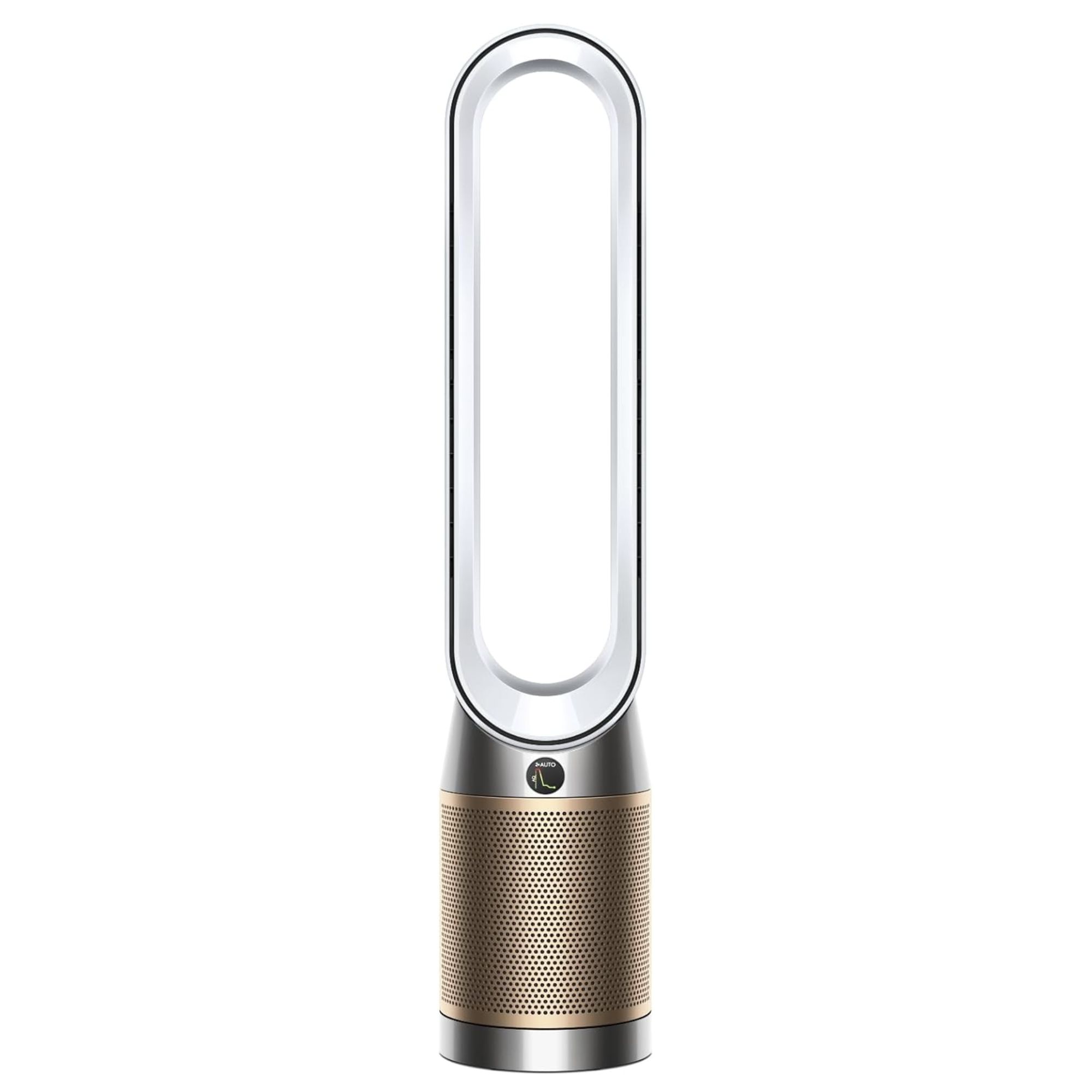
Purify and cool your air simultaneously with Dyson's sleek appliance, available for $429.99 at Dyson.
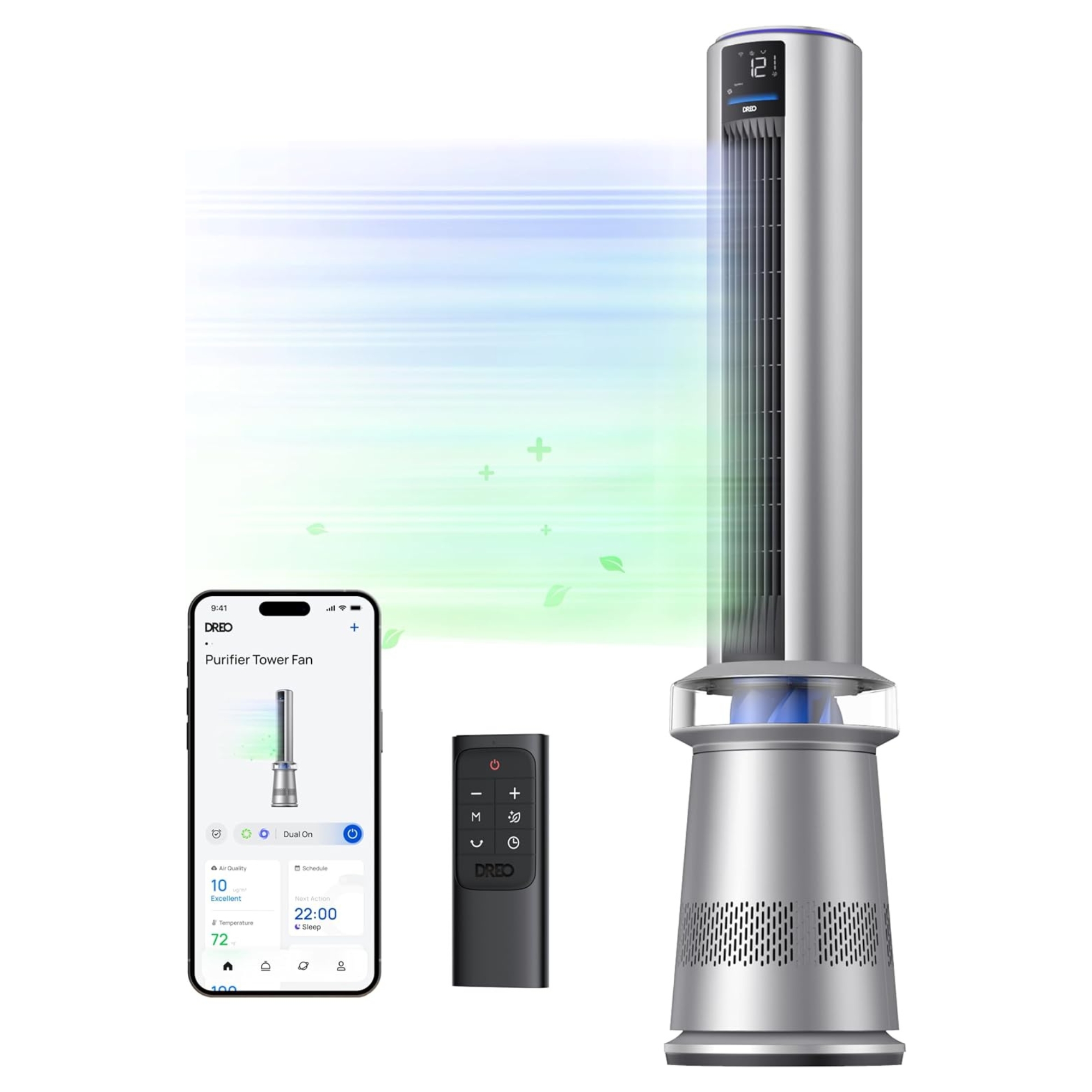
Dreo's purifying tower fan is a strong and affordable way of cooling and cleaning your air. Available at Amazon for $299.99.
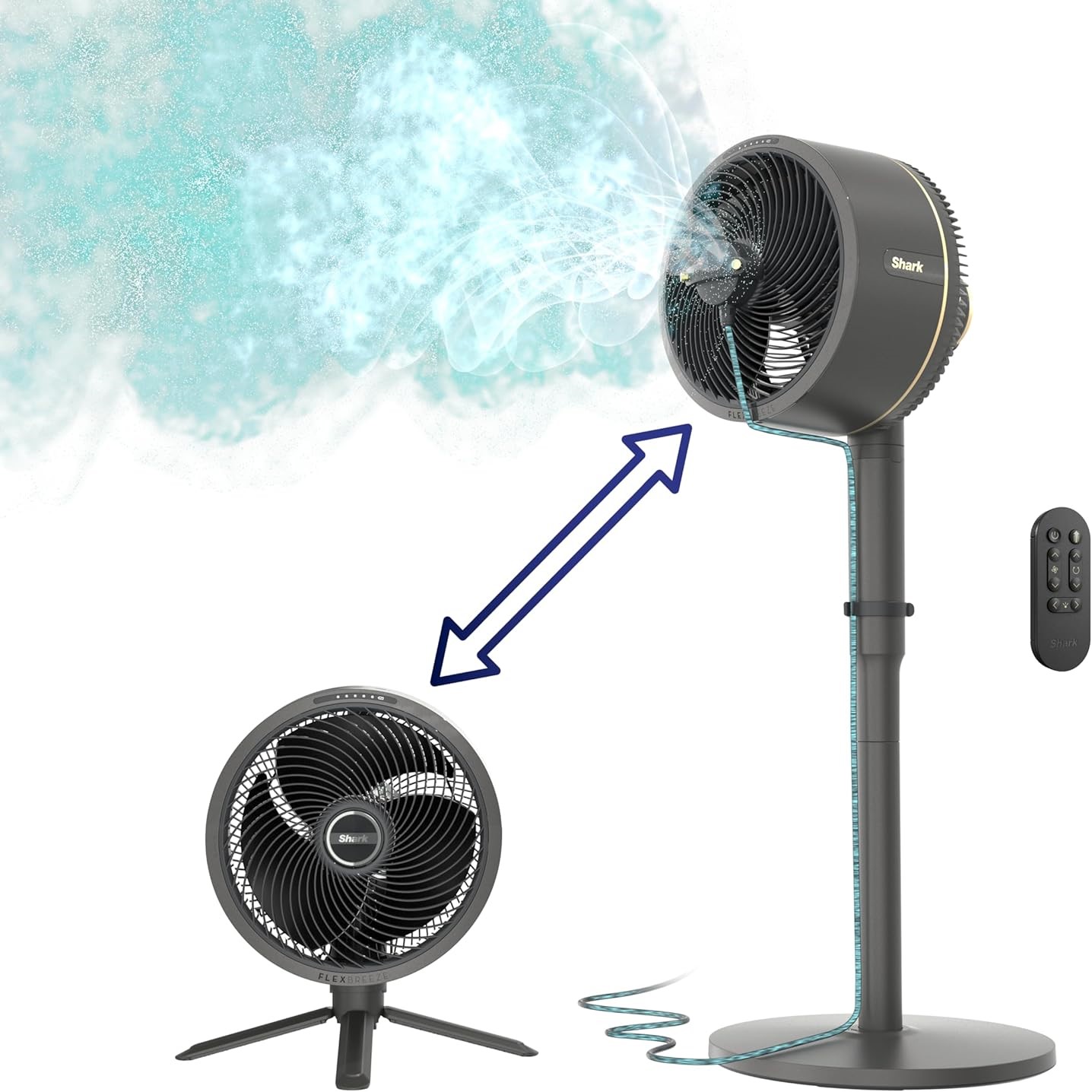
A portable, oscillating fan that can be used indoors and outdoors, with a misting attachment for cool moisture. Available from Shark for $199.99.
Fans vs air conditioners: Which is right for you?
It mostly depends on your climate. If you live somewhere notably humid and with consistent high temperatures, an AC unit is essential. But for milder climates and those with only the occasional extreme heat, fans should be enough to keep you cool when it's needed.
AC units are expensive to install, have higher running costs, and demand regular maintenance. If you can get by without one, you'll save yourself plenty of money and effort. Plus, you can make the most of the extra cooling features that newer fans boast.
Outside of cooling, the best dehumidifiers help to remove moisture from your home, cooling you in the process. The best air purifiers will offer slight cooling, too, while removing fine particles and allergens from your air.
Sign up to the Homes & Gardens newsletter
Design expertise in your inbox – from inspiring decorating ideas and beautiful celebrity homes to practical gardening advice and shopping round-ups.

Dan is the Home Tech Editor for Homes & Gardens, covering all things cleaning, smart home, sound and air treatment across the Solved section. Having worked for Future PLC since July 2023, Dan was previously the Features Editor for Top Ten Reviews and looked after the wide variety of home and outdoor content across the site, but their writing about homes, gardens, tech and products started back in 2021 on brands like BBC Science Focus, YourHomeStyle and Gardens Illustrated.
They have spent more than 200 hours testing and reviewing vacuums for Homes & Gardens, and have even visited Dyson's engineering labs for the full low-down of the ins and outs of our trusty cleaners.
Dan has a BA in Philosophy and an MA in Magazine Journalism. Outside of work, you'll find them at gigs and art galleries, cycling somewhere scenic, or cooking up something good in the kitchen.
-
 Martha Stewart's houses – inside her most iconic properties, from Cantitoe Corners to Turkey Hill
Martha Stewart's houses – inside her most iconic properties, from Cantitoe Corners to Turkey HillThe lifestyle guru built her legacy around her homes, some of which are the most recognized homes in modern American history – we explore her portfolio
By Megan Slack Published
-
 These 5 plants can help you get the best, and potentially tastiest, broccoli ever – discover what to plant with broccoli, and what to avoid
These 5 plants can help you get the best, and potentially tastiest, broccoli ever – discover what to plant with broccoli, and what to avoidOur selection of vegetables, herbs, and flowers is perfect for companion planting with broccoli
By Drew Swainston Published